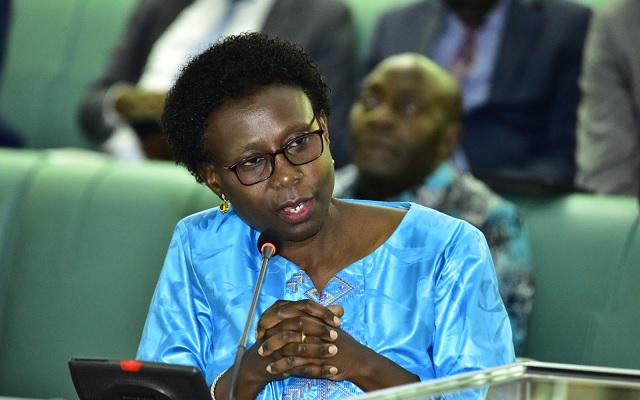The government of Uganda, in collaboration with development partners, has initiated a campaign named ‘End Child Marriage and Teenage Pregnancies’ in Buyende and Luuka districts.
The primary goal of this campaign is to facilitate discussions among girls and various stakeholders, including custodians of girls’ rights, to identify solutions and ensure their effective implementation. The overarching aim is to empower girls to fulfill their potential and provide them with a safe environment.
Disturbing statistics from the Ministry of Health reveal that a concerning 25% of Ugandan teenagers experience pregnancy by the age of 19. Additionally, nearly half of them are married before their 18th birthday, often resulting in continued childbirth into their mid-40s.
A 2021 report from the United Nations Population Fund (UNFP) highlights Busoga sub-region as having the highest incidence of teenage pregnancies. Among the most affected districts are Kamuli with 6,535 cases and Mayuge with 6,205.
The campaign was officially launched in Buyende during the district’s celebration of the International Day of the Girl Child. This annual campaign is a collaborative effort led by girls themselves, supported by the government and Plan International Uganda, with the backing of the Korean International Cooperation Agency (KOICA).
During the campaign’s launch, girls from Busoga presented a ‘call to action’ document focused on eradicating child early and forced marriages. This document addressed the contributing factors, areas of concern, and possible solutions.
One of the key factors contributing to this issue is poverty, coupled with the practice of demanding bride prices. Many parents find it challenging to support the number of children they have, and this exposes their children to sexual risks. Poverty-stricken households face a higher risk of early pregnancies and child marriages.
Limited school enrollment and retention for girls are also significant contributing factors. In many cases, impoverished families are unable to afford education for their daughters, often not fully recognizing the value of girls’ education.
The consequences of early marriage and teenage pregnancy extend beyond the immediate challenges. Girls married off early have limited autonomy and are at greater risk of gender-based violence. Both situations bring shame and stigma and can lead to girls dropping out of school.
Pregnant teenagers are more vulnerable to infections like HIV due to their inability to negotiate safer sexual practices effectively. The risks of maternal complications during childbirth are significantly higher for teenage mothers. For mothers aged 15 to 19, maternal death rates are approximately 28% higher than for those aged 20 to 24. Additionally, girls under 15 years old face a five times higher risk of maternal mortality.
To address these issues effectively, it is crucial to combat gender-based violence, expand youth-responsive services, and invest in youth-led innovative solutions.
One significant challenge is that many cases are settled outside of the formal legal system. Often, those involved in cases of defilement or child marriage negotiate privately, leaving victims without access to justice. In some instances, cases are initiated but abandoned without clear reasons.
Despite these challenges, the Local Council One Chairperson plays a crucial role in gathering evidence, enabling the police to arrest and prosecute offenders in the district.
Government officials emphasize the importance of multiple interventions, such as the Parish Development Model and the Uganda Women Entrepreneurship Program (UWEP), to eradicate poverty, a major driver of these issues. Additionally, parents are encouraged to recognize the value of educating their children, particularly girls.
Acknowledging the government’s efforts to empower women, district leaders note that women now hold prominent positions in the government, including the cabinet and the judiciary, signaling positive change. They also highlight initiatives to provide safe learning environments for girls, including the establishment of boarding sections at schools to reduce dropouts.




















